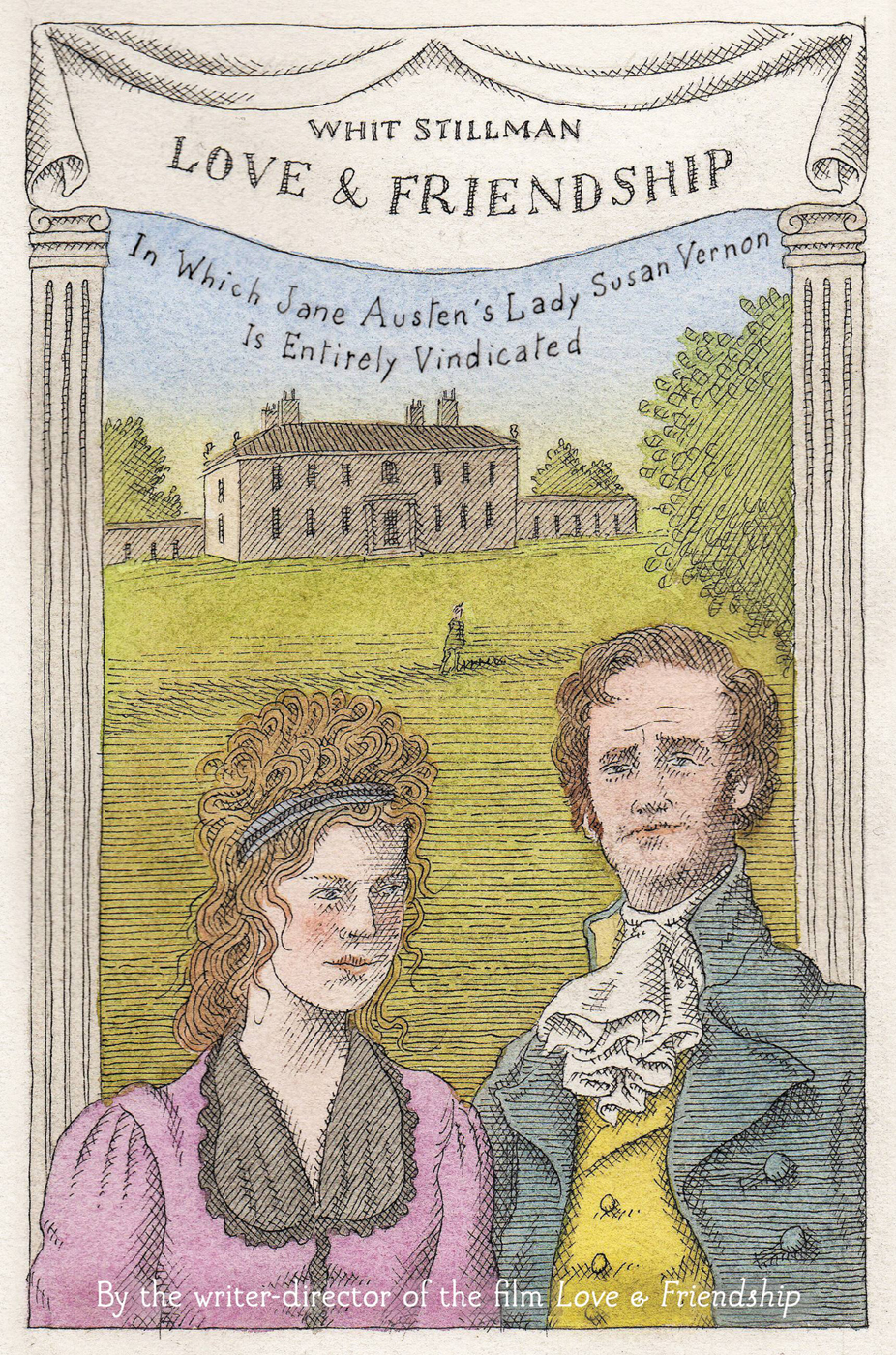
Love & Friendship
In Which Jane Austen's Lady Susan Vernon Is Entirely Vindicated
کتاب های مرتبط
- اطلاعات
- نقد و بررسی
- دیدگاه کاربران
نقد و بررسی

May 2, 2016
Stillman (The Last Days of Disco) cleverly reimagines a little-known Jane Austen character, Lady Susan Vernon from the unpublished novel Lady Susan, following her doting nephew's attempt to clear Aunt Susan's name and restore her reputation. Lady Susan, a recent widow, spends a few months with friends until gossip of a romantic scandal sends her fleeing to her brother and sister-in-law. Marriage plots abound for both Lady Susan and her young daughter, Frederica, as she seeks to establish secure matches that guarantee they will both be well cared for, but it is the means by which Lady Susan procures these proposals that call her character into question. Her sister-in-law, Catherine Vernon (née DeCourcy), and the DeCourcy family are convinced by the gossip surrounding Lady Susan and fear that she means to use her wit and beauty to marry into their family via Catherine's brother, Reginald DeCourcy. A cast of suitors, friends and otherwise, add perspective and dimension to Lady Susan's true motives, and the narrator of the account, Lady Susan's nephew, Martin Rufus Martin-Colonna de Cesari-Rocca, brings both quirky and hilarious flavor to Stillman's story. Martin's commentary and frequent interjections, particularly his thoughts on original author Jane Austen (referred to as the Spinster Authoress), serve as both comedic social commentary and a glimpse into the trivial dramas of the English aristocracy.

April 15, 2016
A merry comedy of pride, prejudice, and duplicity. In this spoof on a certain "spinster authoress" (aka Jane Austen), writer, director, and novelist Stillman (The Last Days of Disco, With Cocktails at Petrossian Afterwards, 2000) has fashioned a frothy tale narrated by the nephew of one Lady Susan Vernon, the title character of Lady Susan, an unfinished epistolary novel published more than 50 years after Austen's death. Unfairly maligned by the authoress, Lady Susan, the narrator maintains, was "the kindest, most delightful woman anyone could know, a shining ornament to our Society and Nation." She was not a blatant flirt who stole one woman's husband and another's lover. She did not contrive to marry her daughter off to a man the girl despised; she was not a deceiver and manipulator who treated truth gingerly. "Facts are horrid things!" she once exclaimed, but the narrator does not take that remark at all seriously. Facts were horrid things in his own life: he confesses that he writes from "the ignoble abode" of prison, where he is serving a sentence for "financial and legal difficulties," including embezzling funds that he "had every intention of restoring." Determined to give a true and complete account, he includes footnotes for words and phrases that he supposes are not familiar to his readers: the etymology of "vindication," for example, and the origin of the phrase "under par." He is a stickler for punctuation: a schoolmaster convinced him of its importance in all discourse. "Over the intervening years," he writes, "I have learned that what we are taught by our elders, no matter how seemingly improbable or ridiculous, is nearly always to be true." The narrator appends his earnest narrative with a trove of his aunt's letters, which he claims have been altered by the authoress to cast the estimable Lady Susan in a bad light. Silly, sly, eccentric characters and brisk chatter make for a diverting romp.
COPYRIGHT(2016) Kirkus Reviews, ALL RIGHTS RESERVED.

May 1, 2016
Writer-director Stillman, best known for his 1990s trilogy, Metropolitan, Barcelona, and The Last Days of Disco, adapted Jane Austen's least-read work, Lady Susan, to create this novel of manners, which divulges the exploits of a shrewd, middle-aged widow notorious for coquetry. When Lady Susan visits her in-laws, the De Courceys, she manipulates, charms, and deceives them in order to find husbands for her and her daughter. The funniest parts of the story, however, are not Lady Susan's antics but the narration. Whereas Austen wrote in epistolary form, the narrator hereLady Susan's nephewclaims that the De Courceys hired a Spinster Authoress to fabricate those letters to tarnish his aunt's reputation. Hilarious in his vehement defense of Lady Susan, the nephew demonstrates his naivete when he mistakes her mockery for inside jokes and her selfishness for generosity. Especially amusing are his patronizing footnotes. Janeites will relish the humor, while this send-up, which includes the original text annotated by the delusional nephew, also works as a transition piece for those daunted by classic literature. Pair this with Stillman's forthcoming film of the same name.(Reprinted with permission of Booklist, copyright 2016, American Library Association.)

March 15, 2016
As evidenced by his cult favorite Metropolitan, filmmaker Stillman has a fine eye for social niceties, so he should do well with this reworking of Jane Austen's unfinished early novella Lady Susan. In the 1790s, beautiful widow Lady Susan Vernon drops in unannounced at her brother-in-law's estate so that she can elude some unpleasant gossip. There, she starts husband hunting for both herself and daughter Frederica, who's not eager to take the debutante route. Stillman adds narration from a character too, too devoted to the wily Lady Susan. Look for a spring release of a film based on the expanded story starring Chloe Sevigny, Kate Beckinsale, and Stephen Fry; with a 40,000-copy first printing.
Copyright 2016 Library Journal, LLC Used with permission.

























دیدگاه کاربران